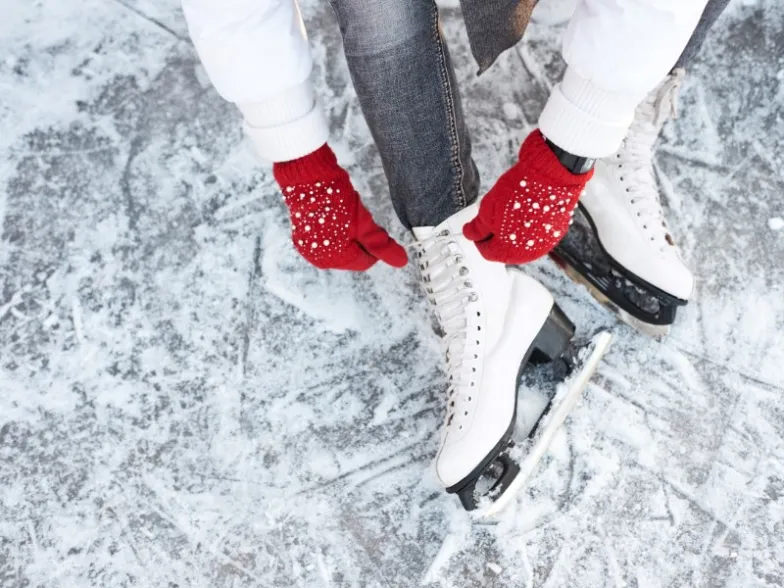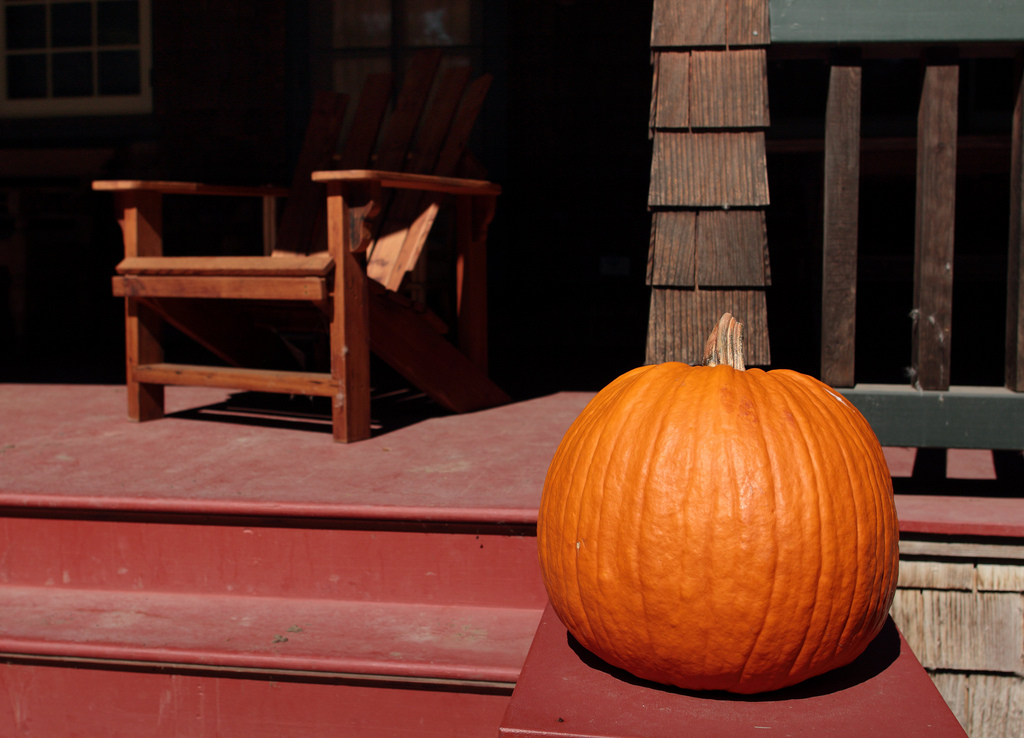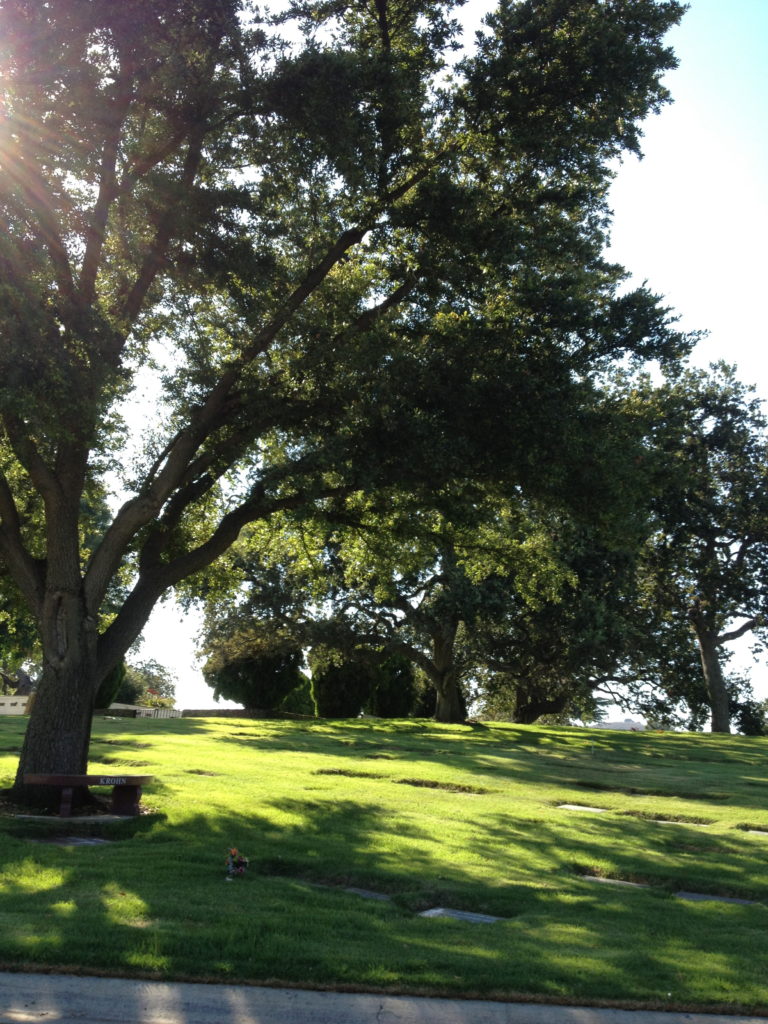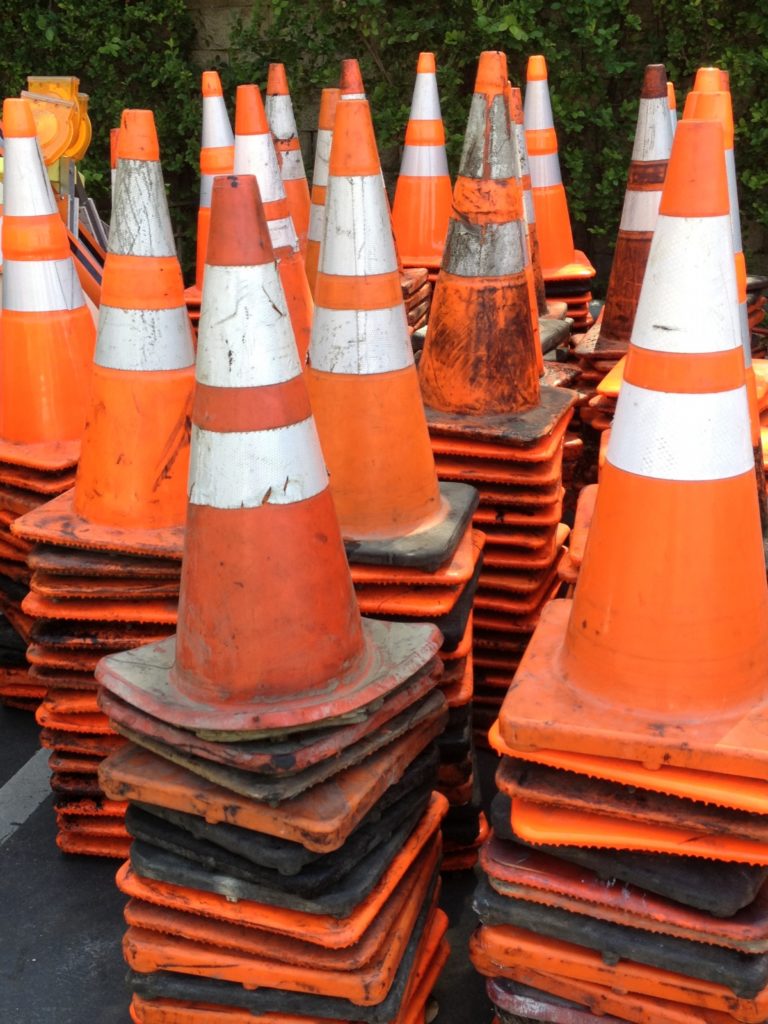Stacy is nursing a grudge against Marie when a brushfire traps them deep in an ice skating pond.
I recently found this story in my older files. I wrote it 30 years ago, in 1992, for a writing class I was taking. The story needs revising, but I share it with you as an example of my earlier work. Enjoy.
Fire on Ice
Bob Gillen
Shivering in the early January cold, Stacey gave her skate laces a final tug. She settled her Walkman headphones down over her dark hair, then pulled on her hat and gloves. She clapped her hands together to get the feeling back in her fingers.
What I don’t need is frostbite, she thought. Not with three more games left to the basketball season. She sighed. Not that it matters much after last night’s game.
A whack on her shoulder knocked her back to the present. Spinning around, she saw the grinning face of her friend Billy.
“You scared me, man,” Stacey said. “How about a little warning next time?”
“If you didn’t have those headphones implanted in your skull, you would have heard me calling you,” Billy said. “Come on, everyone is ready to skate.”
Stacey turned up her collar against the stiff wind. Looking up, she saw a group of kids warming themselves around a fire burning in a battered steel barrel at the side of the pond. One girl stood out from the crowd. Or rather, was encircled by the crowd.
“Marie is there,” Stacey said.
“Yeah, why?” Billy asked. “You still mad at her?”
“Wouldn’t you be?” Stacey siad sharply. “Coach told me to go in the game for her, but she wouldn’t leave the court. She kept pretending she didn’t hear me calling her out.”
“Come on, Stacey,” Billy said. “You don’t know that for sure. Maybe she really didn’t hear you.”
“We only lost by three points. I could have blocked those shots and maybe scored a few if I were in the game. We could have won that game.”
“Stacey, give it up,” Billy said. “Let’s skate and have some fun.”
Stacey watched Billy step out onto the ice and glide over to the group of kids. Stacey followed slowly, working to control her skates. I’d rather be on the basketball court, she thought.
When Stacey got closer to the other kids, Marie called, “Ah, it is Stacey at last. With those things covering your ears, it is no surprise to us that you did not hear us call you.”
I can’t stand the way she talks, Stacey told herself.
“You’re the one with the hearing problem, Marie,” Stacey said hotly. “You sure went deaf when it was time to come out of the game last night.”
“You are angry with me still, oui?” Marie said. Turning to Billy, she continued. “Many times I have said to her that I did not hear her, but she does not believe my words.”
“You heard me,” Stacey said. “I know you did.”
Marie did not answer. Feeling her face get red, Stacey skated out unsteadily onto the pond. Marie sped after her, swerved, and stopped abruptly, showering Stacey’s legs with shaved ice.
“Would you desire to race?” Marie asked.
“Just leave me alone,” Stacey said, skating away again. She made a wide circle on the pond and came back around to where Billy was standing.
“I can’t take her at all,” Stacey said, nodding in Marie’s direction. “She thinks she’s so great.”
“She’s a good skater,” Billy said. “She figure-skated in Montreal before she moved here.”
“She should have stayed there,” Stacey sniffed. Again, she skated off alone.
For an hour or so, she skated up and down the pond, pretending she was sprinting up and down the basketball court. The sun was sliding down behind the woods on the far side of the pond when she skated over to rejoin the other kids. They were watching Marie skate figure eights backwards.
“Anyone want to get warm?” Stacey said. “I’ll build up the fire.”
No one answered. She stepped off the ice and over to the barrel. Throwing a handful of dead braches into the fire, she extended her hands out over the barrel. She wanted the deep chill she felt to melt away. A gust of wind sent embers off into the air like tiny runaway balloons.
“This fire is not big enough to warm us.”
Stacey turned to see Marie dragging over two discarded Christmas trees.
“Marie, what are you doing?” Stacey questioned. “It’s too windy and dry. Those trees will shower sparks all over the field.”
“Do not worry yourself,” Marie said. Turning to the other kids, she called out, “Come, let us get more trees for a larger fire.”
Stacey spun around, got back on the ice, and skated across the pond. Anger burned inside her. She saw a narrow ice path, a frozen drainage ditch, that cut into the woods. She followed the path and came out into a tiny back pond half hidden in the trees. It was only about fifty feet across. Sitting down on a stump at the edge of the ice, she turned her back to the main pond.
Pulling off a glove, she reached into her pocket, switched on the Walkman, and pulled the headphones back down over her ears. The setting sun sank slowly behind the bare trees, sending the braches’ tangled shadows reaching across the ice.
Why is this happening to me? She thought. She scratched at the ice with the heel of one blade. No one likes me any more.
The shadows, like twisted tentacles, began inching up her legs. She imagined them wrapping around her and dragging her down under the ice.
Just as one willowy wisp of shadow crept up her jacket and groped for her neck, a spray of shaved ice stung her face. Jolted, she looked up to see Marie moving her mouth and pointing frantically back towards the main pond.
“Get lost,” Stacey said. “Whatever you’re saying, I’m not interested.”
Marie grabbed at Stacey’s headphones, pulling them off her head. “Feu, feu!” Marie shouted.
“Take your French and get out of here,” Stacey shouted.
Marie took Stacey’s head in her hands and turned her around.
“Fire!” Stacey gasped. A fury of burning trees and brush stretched across her vision.
“Oui, oui,” Marie nodded. “The wind has spread our fire. The fault, it is mine. Come quickly.”
But as Marie started back out to the ice path, the wind drove the flames across the path ahead of her. They flared into the brush and trees on the other side.
Stacey spun in a quick circle looking for a way out. She saw snarled woods ringing the other edges of the pond. Trying to push through the trees ahead of the flames on ice skates would be madness.
Wind-driven sparks showered around them. Stacey slapped at several that landed on Marie’s sweater.
“We are trapped,” Marie said.
The flames began circling the pond.
Marie pointed toward the flames arching over the ice path. “If we remain low, perhaps we can pass,” she yelled, and took a step toward the path.
Stacey grabbed for her to hold her back. She managed to grip Marie’s left sleeve, but Marie yanked it away. Stacey lost her balance and fell, rolling close to the flames. She came to a stop face down on the ice.
The cold against her face reminded her of something. Ice on a bruised leg. Ice cubes. Water.
“Marie, get back here,” Stacey screamed. She scrambled to her feet, moved out to the middle of the ice, and began chipping and hacking at the surface with her skate blades. Marie, turned back by the flames, hurried over.
“Break the ice,” Stacey shouted. “Splash the water on yourself.”
Stacey’s right foot broke through the frozen crust. She cringed as the icy water seeped into her skate. Marie helped her widen the hole in the thick ice. Both girls plunged their hands into the water and sloshed the frigid liquid on their clothing and their exposed faces.
Stacey told Marie to turn around, and she threw water on Marie’s back. Sparks rained down, hissing on the wet clothing and sizzling on the ice.
“Pull your sweater up over your head and get down,” Stacey yelled.
Thick smoke blew across the exposed ice patch, assaulting their nostrils. Marie crouched close to Stacey. Stacey saw her hands and knees shaking violently.
“My friend,” Marie said. “I am so scared.”
“It’s okay,” Stacey said, putting her hand on Marie’s arm. She felt her own knees shaking.
They clung to one another for an eternity. Finally, Stacey felt a puff of clear, cold air on her face. She raised her head to look around. The fire had now burned its way around the little pond, leaving blackened trees and charred earth behind. Only a few stubborn flames, standing out against the growing darkness, still burned in the thicker clumps of brush.
“Marie, let’s go,” Stacey said. “We can make it now.”
Still shaking, the two struggled stiffly to their feet and moved towards the path.
Stacey caught her foot on a fire-blackened branch and fell. She felt Marie pull her back up.
“Hold on to my waist,” Marie said. “I am the better skater.”
Holding Marie for support, Stacey half-walked, half-skated down the soot-covered ice path. As they reached the main pond, Stacey saw the red lights of fire trucks flashing across the pond.
“I guess we made it,” Stacey said.
“Thank you, my friend,” Marie said. “You have saved us.”
“You were pretty cool yourself,” Stacey said. “Thanks for coming after me. After the way I’ve been acting…”
“Is that not what a teammate is about?” Marie said.
“Yeah, Marie,” Stacey grinned. “That’s what a teammate is about.”
***




Recent Comments